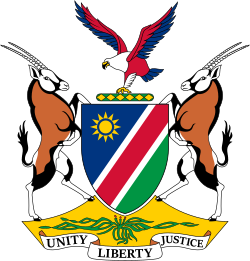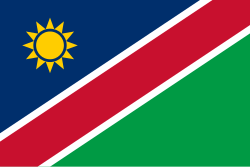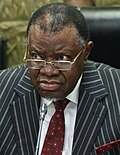| Prime Minister of the Republic of Namibia | |
|---|---|
 | |
 | |
| Residence | Old State House |
| Appointer | President of Namibia |
| Term length | 5 years |
| Inaugural holder | Hage Geingob |
| Formation | 21 March 1990 |
| Deputy | Deputy Prime Minister of Namibia |
| Salary | 76,339 USD annually [1] [2] |
| Website | https://opm.gov.na/ |
 |
|---|
The prime minister of the Republic of Namibia is the leader of the Government of Namibia. The prime minister is appointed by the president and coordinates the work of the Cabinet. They also advise and assist the president in the execution of the functions of government.






